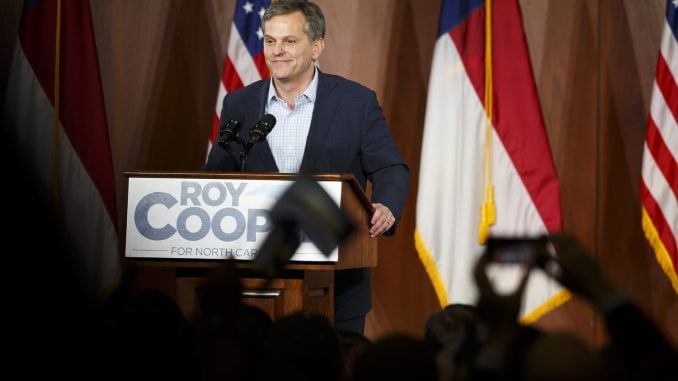
RALEIGH — North Carolina is no longer among the states suing the federal government over a series of far-reaching environmental regulations.
The Clean Power Plan, set up by the Environmental Protection Agency under Barack Obama and the Clean Power Act, was supposed to be one of the former president’s legacy items designed to reduce carbon dioxide emissions and focus effort on developing alternative energy sources.
Under former-Gov. Pat McCrory, N.C. joined 24 other states in suing over the part of the plan that sets regulations on carbon dioxide emissions from existing power plants, saying the agency is acting well beyond its authority in trying to implement the stricter regulations on existing plants because they are already regulated under a separate law and Congress did not give them the authority to do so.
Now, N.C.’s Attorney General Josh Stein, at the request of N.C. Department of Environmental Quality’s Secretary Michael Regan, withdrew the state from the ongoing legal challenge to the regulations.
“We are working to assess our agency and its challenges so we can better position ourselves to meet our greatest priorities going forward,” Regan said. “We feel that pursuing this potentially expensive legal challenge is not a good use of state resources, would not be in line with our agency’s mission to protect the environment, and would not serve the best interest of taxpayers.”
The motion to withdraw from the case was filed with the U.S. Court of Appeals for the District Court of Columbia Circuit by Stein on behalf of Regan and the N.C. Department of Environmental Quality.
“Investing in clean energy creates jobs, enhances our energy independence and combats climate change,” Stein said. “The Department of Environmental Quality asked me to withdraw North Carolina’s participation in this lawsuit because it frustrates these important goals. I am glad to do so.”
Regardless of the state’s participation, the fate of the suit is uncertain. One of President Donald Trump’s early executive orders directs the EPA to rewrite the section of the Clean Power Plan that the suit protests. His executive order also directs the EPA to rewrite other sections of the Obama-era regulatory plan including one that gives the federal government more authority over states’ waterways and lifts a moratorium on federal land coal leasing.
Throughout the campaign, Trump promised to address the regulations and what he and other conservatives believe to be EPA overreach. Many believe his selection of Scott Pruitt as EPA chief indicated his commitment to that campaign promise.
Just a week ago the U.S. Senate confirmed Pruitt, who is the former attorney general of Oklahoma and one of the primary plaintiffs in the suit against the feds over the Clean Energy Plan. In his first address as EPA secretary to employees, Pruitt told them that the agency will be “tethered to” and “respect the rule of law.”
“We as an agency and we açs a nation can be both pro-energy and jobs and pro-environment,” said Pruitt. “Regulators exist to give certainty to those they regulate…Process matters and we should respect that and focus on that, and try to avoid, do avoid, abuses that occur sometimes.”



